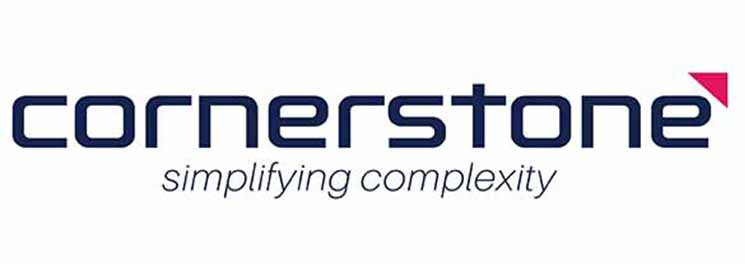
Beyond Best Practice: Why Centres of Excellence Drive Real Business Impact
Best practice is no longer enough. To lead their industries, organisations need Centres of Excellence that embed strategic thinking, bridge expertise and execution, and ensure innovation isn’t just talked about—it’s delivered. Here’s how CoEs can drive measurable, long-term business value.
Every organisation aspires to lead its industry, yet many settle for “best practice” as their ultimate goal. The inherent problem with this mindset is that best practice only gets you where the leaders already are – it doesn’t propel you beyond them. To move ahead, businesses need more than a hub for expertise; they need a Centre of Excellence (CoE) that continuously pushes the boundaries of what’s possible.
A well-structured CoE goes beyond acquiring the latest technology or hiring top talent. It ensures businesses make the most of their investments by transforming expensive platforms into essential tools, unlocking internal expertise and reducing reliance on external specialists. By bridging these gaps, a CoE embeds innovation, efficiency and strategic thinking into daily operations.
More than just a vehicle for efficiency, a CoE attracts top talent. High performers seek workplaces that foster growth, encourage continuous learning, and provide opportunities to make an impact. When structured effectively, a CoE cultivates this environment, bringing together analysts, subject matter experts and business leaders to tackle complex challenges, by questioning outdated assumptions. More than a signal of commitment to innovation, it establishes the organisation as a leader in its field.
CoEs built around technology or function
CoEs can have different focuses, depending on what they are required to do. Some focus on specific business functions, refining expertise and establishing best practices within a discipline.
For instance, many Finance CoEs have been established as a dedicated hub for financial intelligence, scenario analysis and strategic decision-making. Others may focus more on harnessing the cross-functional impact of a particular technology. This is often seen in Supply Chain CoEs, where data analytics, automation, and AI-powered insights are leveraged to drive smarter, more responsive decision-making.
Despite substantial investment in cutting-edge platforms, many organisations struggle to realise their full potential. Without a dedicated team to drive adoption and optimisation, even the best systems risk becoming costly, underutilised assets.
A technology-driven CoE prevents this by ensuring businesses extract maximum value from their systems, strengthening in-house capabilities while strategically leveraging external expertise. This balance between internal development and external insights builds both agility and long-term success.
However, not all CoEs deliver on their promise. Some become overly bureaucratic, prioritising process over results. Others lack scope, addressing only tactical issues without driving strategic change.
5 core principles for effective CoEs
The most effective CoEs follow five core principles that keep them focused and consistently valuable:
Principle 1: The right people with the right skills
A CoE’s success depends on the expertise within it. It needs analysts and specialists with deep knowledge, as well as influencers and collaborators who challenge the status quo. A critical role is the business partner or controller, who acts as the connection point between the CoE and the rest of the organisation. This role breaks down silos and ensures seamless communication across teams.
Principle 2: Clear authority to solve the right problems
Without a defined focus, a CoE risks tackling issues too broad to resolve or getting lost in minor tasks that fail to make a real impact. A strong CoE is empowered to address strategic challenges, aligning its efforts with business priorities rather than becoming a catch-all for operational concerns.
Principle 3: Root cause analysis over firefighting
Recurring problems require deeper investigation by the CoE – one-off incidents do not. A CoE isn’t an emergency response unit; its purpose is to identify patterns and optimise the business for the future. When a CoE shifts into crisis management mode, it loses its ability to create long-term value.
Principle 4: Continuous learning and improvement
Solving today’s problems isn’t enough. A CoE should track results, and analyse past decisions to refine its processes over time. The most effective CoEs function as learning engines, using each success and failure to build a knowledge base that informs future strategies.
Principle 5: Sustained executive support and long-term investment
Many CoEs launch with enthusiasm, only to fade into the background once initial objectives are met. A successful CoE is an evolving function, continuously adapting to the organisation’s needs. Executive sponsorship is critical to maintaining momentum and ensuring the CoE remains a strategic priority. In business, standing still is the same as falling behind – without ongoing investment, organisations risk having to rebuild lost capabilities in the future.
Embedding a CoE into the organisation
To build a CoE that lasts, organisations need to embed it into their way of working. Too often, businesses treat CoEs as external functions rather than integral parts of their operations.
When properly structured, a CoE doesn’t sit on the sidelines – it becomes the engine for ongoing improvement, ensuring that insights aren’t just generated, but also acted upon. Companies that master this approach don’t merely adopt best practices; they define what best practice will be in the years to come.
We are enablers of change and transformation in Financial Planning & Analytics, Supply Chain, Information Management, Management Consulting, Project Management, and Managed Application Services. Contact us to find out more or call 1300 841 048 to find out how.




